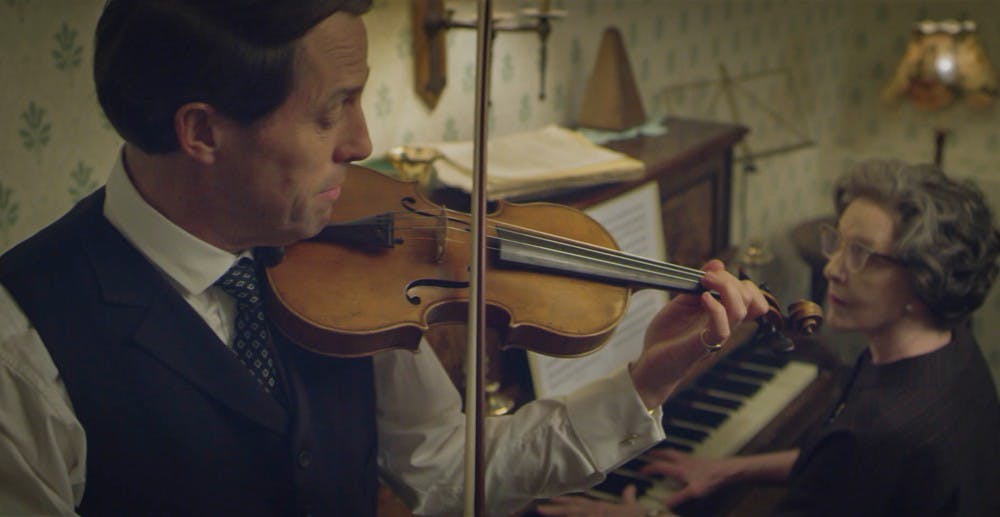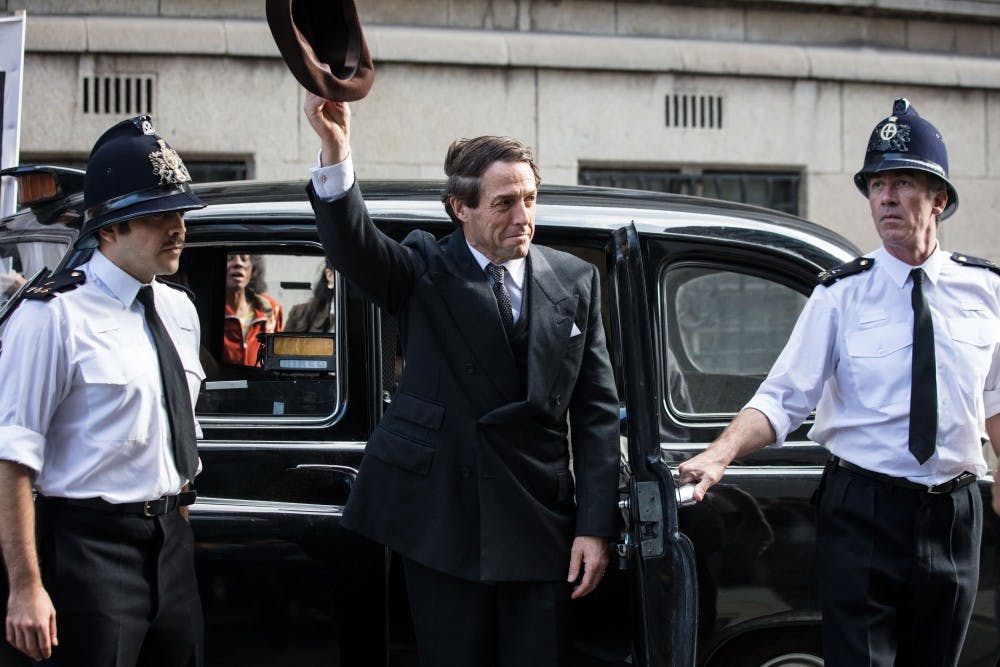While the background of the Thorpe affair is mostly unknown to Americans, the consequences of Jeremy Thorpe’s quiet affair with Norman Scott, a relationship that ended shortly after it began, had effects on both of their lives and certainly Thorpe’s political career. Ben Whishaw accepted a Golden Globe for Best Supporting Actor in a Limited Miniseries, marking his first American award and the only win for the show, A Very English Scandal. He thanks, in quick succession, his director, his writer, the surrounding cast, and then, in a slower tone, turns to dedicate the award to the man he portrayed: Norman Scott.
The fact that Whishaw won this award as a supporting actor is something of an anomaly. The show is about Jeremy Thorpe's attempts to maintain his position in Parliament and become the head of the Liberal Party after the 1961 affair with ex–model Norman Scott.
On paper, yes, it is Hugh Grant’s Thorpe who is the main star in the Amazon Prime miniseries, yet the balance of the show is far less tilted in Thorpe's direction. Though Thorpe is the main character, Whishaw's portrayal of Scott is humanized in a way that the real Norman Scott never was under the press’ spotlight. A Very English Scandal succeeds in depicting a newly uncovered humanity in both of its characters, no longer making them the shallow spectacles they were during their time.
Here is what A Very English Scandal does so beautifully: neither one of the characters is in the right. Thorpe is corrupt in many ways—he refuses to grant Scott a National Insurance card as it would concretely link the two together, and instead responds with a comical scheme to assassinate him. However, we also see Scott as a self–destructive, aimless man going to similar extremes to get what he wishes, sometimes at the cost of his dignity. Both are rather arrogant and unfortunately entangled with each other because of an affair ten years behind them.

Their faults are their humanization. It is quite easy to portray both of them as awful—Thorpe as an evil, unrelenting politician, and Scott as an idiotic layman—yet the show shines in the sympathy it encourages. Both men are driven by quite different things, but both are so obviously suffering under the homophobia of the time. Their strife is directly caused by the other, creating a fleshed out and justified narrative.
Not only do we see the characters as people with complex internal lives, but it is impossible to separate them from the greater social situation. Thorpe is pressed on all sides by his lofty political goals, his internalized homophobia, and the pressure to embody the overemphasized masculinity characteristic of a political leader. Grant handles these sides of himself with beauty and delicacy, breaking free from the often one–dimensional rom–com heroes he plays and instead depicting a much more flawed central character. Scott, too, is hit with the homophobia of the time—first resorting to marrying a woman with whom he feels no connection, then eventually coming out, much to Thorpe’s frustration. The quiet persistence of homophobia throughout the show is never thrown in your face, but it becomes increasingly obvious that its effects on the characters are almost as vital as Thorpe’s affair with Scott in the first place.
Scott and Thorpe face off against each other in the courtroom in 1976. Despite knowing that it was Thorpe who threatened to murder Scott, it is hard to know who to root for. We know Thorpe is guilty, but the outcome of the trial is still as nail–biting as it would’ve been at the time. Here is Scott, a gay man standing up before a conservative court against one of the nation's up–and–coming political leaders. There is Thorpe, who we know is torn apart by expectations from his family, friends, and rivals. They are both so complex—so human—that such a face–off has one yearning for a happy ending that will never come.
While it does make sense that Whishaw was nominated for best supporting actor, A Very English Scandal refuses to place either one of its main characters at its forefront. Its ability to pull off such a balancing act while also featuring Whishaw’s fantastic performance makes this miniseries a work of art. Whishaw manages to find humanity in a person whose actions might be considered a minor blip in history, a mere irritant to a man destined for greater. For this, Whishaw, and all those involved with producing the show, deserve the utmost praise.

